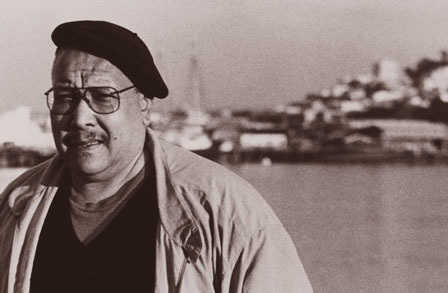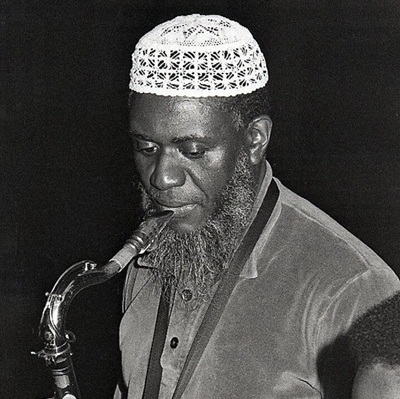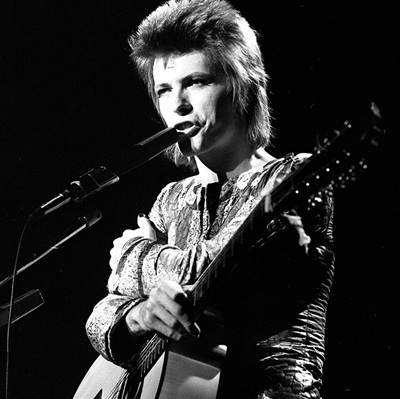
Brown University professor Michael Harper, the first Poet Laureate of the State of Rhode Island, shares his personal perspectives on Ralph Ellison.
________________________
My first poem in December Magazine had an interview with Ralph Ellison in it called “That Same Pain, That Same Pleasure,” conducted by someone who taught at the University of Chicago. I remember reading that interview and thinking that Ellison made a lot of very complicated kind of allusions, many of which I didn’t follow. That’s because he was a comic writer. Anybody who has read a lot of comic writing knows that comic writers are deadly serious.
He was an extremely good soul and a role model of mine, and of course later on I got a chance to meet him and we became friends. I was able to pull together this Ralph Ellison Festival at Brown University in 1979, the purpose of which was to have some event that would signify his leaving his professorship at NYU. The only reason Ellison came to Brown for this festival was because I knew the connection between him and Inman Page. Page was the first black graduate of Brown University in the class of 1876, and was Ellison’s high school principal at Frederick Douglass High School in Oklahoma City. I knew that, and got him to participate in memory of his old teacher. Of course, I knew that was something Ellison couldn’t turn his back on.
I would not call him an intimate, because, after all, we were a generation apart. He was born in 1914, and I was born in 1938, so we were not chums. One did not become a chum of Ralph Ellison unless he said so.
Ralph was an individual person, partly because he grew up in Oklahoma, and partly because he lost his father early in life. Even more than that, he had a socially responsible and committed mother.
He started as a musician, so it is not astonishing to me that his work would be musical. He saw and composed as a musician, that is to say, I think his famous novel Invisible Man could be read as a kind of musical score.
One of the things that I think is really a handicap to Ralph Ellison is that he spent so much time explaining his craft because he was so much ahead of his contemporaries. His ability to work with ideas was way beyond his contemporaries, who were basically journeymen.
His favorite book was Moby Dick. That is the ballpark he was trying to play in. People wanted to know why he didn’t write a bunch of novels. Well, what I say is that he wrote one novel that is just unbelievable. Why isn’t that enough?
Ellison was a tremendous dancer, that is to say that ballroom dancing was his area. He thought that that particular music was one of the highest expressions of art.
He understood Count Basie’s music, and Ellington’s as well, as a cultural and musical force. Ellison was the one who pointed out that one of the reasons why Ellington had such a grand style was because he grew up in a household where his mother was able to give him great attention. His father was one of the people who waited tables in the White House. Can you imagine the father coming home to his family, telling them of what it is like serving royalty?
His essays on Charlie Christian and Duke Ellington give you a clear idea about how serious he was about keeping alive a certain tradition.
Ellison had tremendous qualms with people who wanted to completely eviscerate a tradition that had turned people on for a long time.
One of the reasons he was angry with Charlie Parker is because Parker was so self-indulgent. If Parker had lived to be a man of 70, I think Ellison would have been a lot more forgiving about his music. Parker became a role model for an entire generation of people who emulated his social behavior and not his musicianship.
Ellison never made excuses for artists to abdicate their responsibilities to the larger society. He always insisted in doing it on his own terms, which is why he is so difficult with people, because he refused to reduce his complexity to slogans. One of the things that Ralph liked to say, over and over again, is that there is no essential part of American experience that black people don’t have input in. What he meant by that is, first of all, the language precedes the country in the sacred documents. Black people were already in this country, messing with the language and extending it. They weren’t going to school, but they were communicating. They had an influence that was enormous, on the speech rhythms, on the language, all of the aspects to the importance of human living, whether it be cuisine or architecture or music after all, it was black people who implemented the building of Thomas Jefferson’s house. Black folks did that!
He was one of the earliest people I know who talked about “constitutional behavior” and the way in which to protest. The Supreme Court with Brown vs. Board of Education and Thurgood Marshall Ralph knew all the cases that went up there and many of these cases started in Texas and in Oklahoma. He knew about these things, and of course his responsibility for what we call “citizenship” was far reaching – probably more than any of his contemporaries.
“Antagonistic cooperation” was one of Ellison’s favorite phrases, the willingness to disagree and define things that he did and to get into discourse with people and to correct them.
Thomas Mann’s son left Germany, came to the United States, and meets Ellison. Mann’s son sees an analogy between what happened in Germany with the Nazi’s and what American slavery was. Ralph stopped him and told him that whatever happened in Germany was an anomaly, and it is not the equivalent of American slavery in this country. For you to see it as an analogy is to eclipse the complexity of Black American experience.
He was concerned that many of the people did not take advantage of books. The books that he used to write Invisible Man, which is to say all of the stuff that came from T.S. Elliot – The Wasteland, and all of that – these were books that came from the library! Somebody had to order them. That is why Ralph said that being the child of segregation didn’t necessarily give you a handicap and to be unwilling to participate in the larger society. What more information do you need other than what is in books? It was good enough for Mark Twain in Huckleberry Finn, why isn’t good enough for you?
Ralph used to say over and over to me, if you want to hide something from somebody, put it in a book, because most people don’t have the time to read. What he is also saying is that his critics ought to do their homework before they criticize.
Ralph never deferred to any authority that depicted black people as inferior or inhuman. Period.
______________________
Michael Harper products at Amazon.com
Ralph Ellison products at Amazon.com
_______________________________
Interview took place on January 24, 2002
If you enjoyed this interview, you may want to read our interview with Ralph Ellison biographer Lawrence Jackson.















































